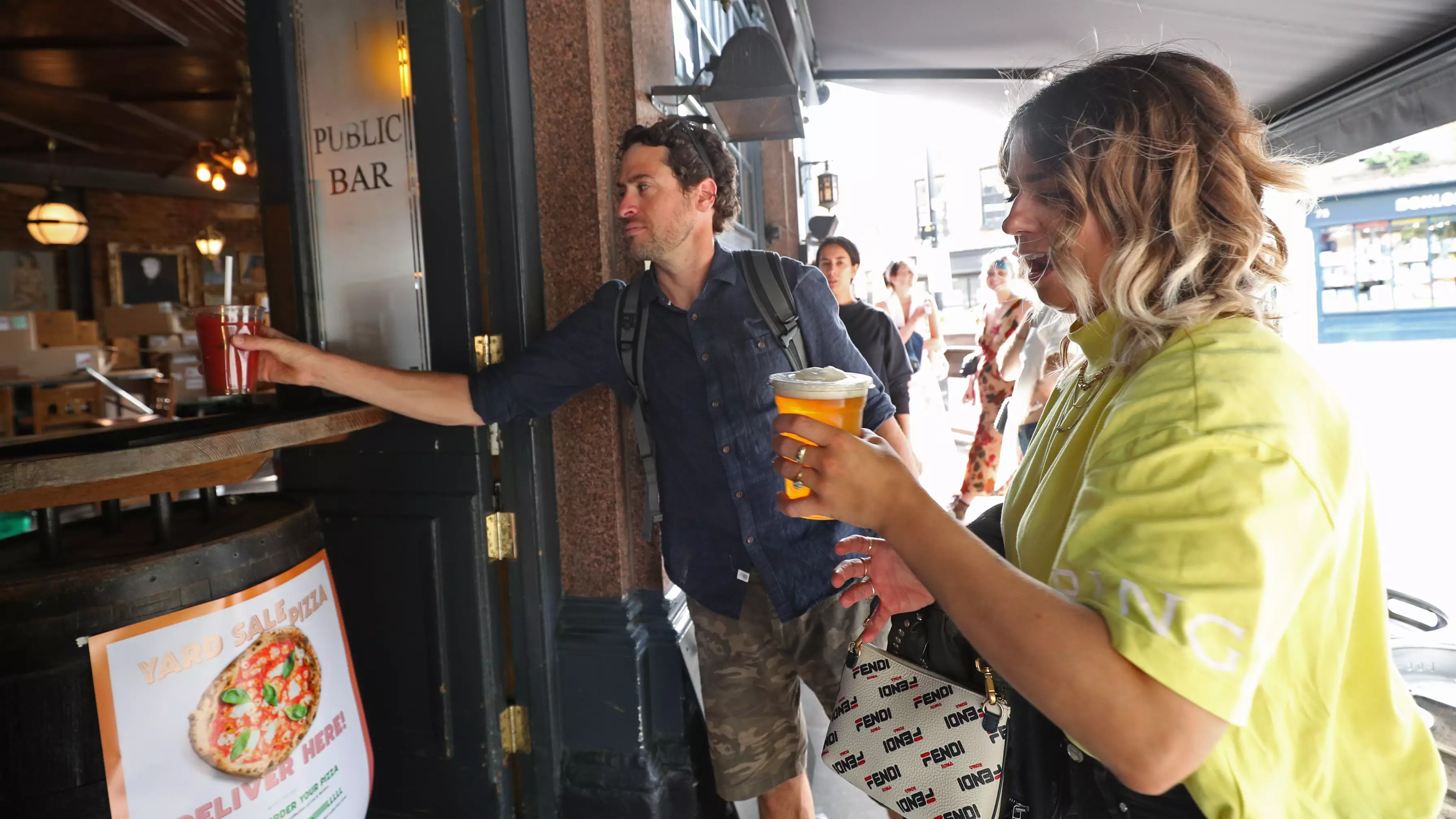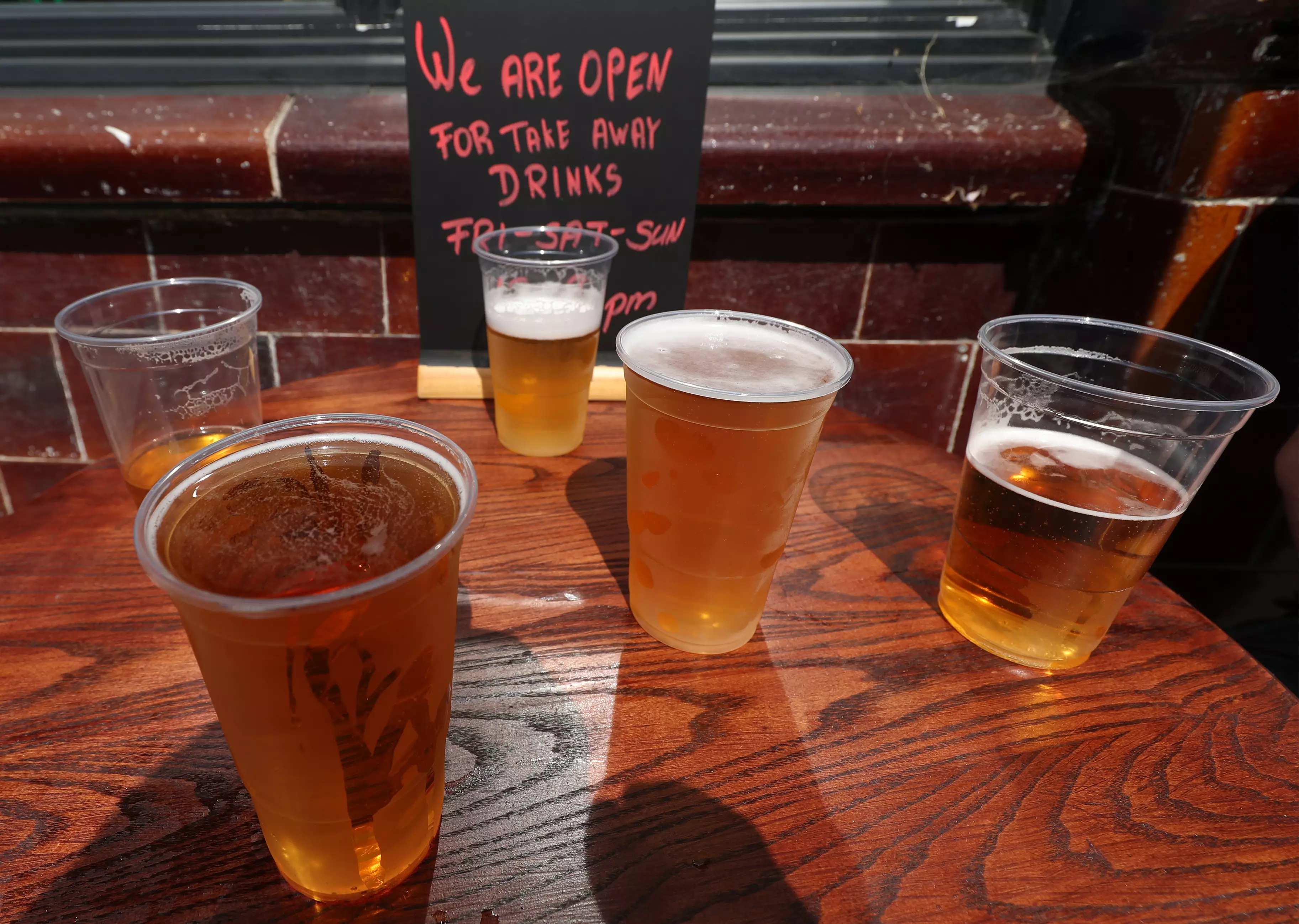
Alcohol is banned for takeaway and click-and-collect under the new national lockdown.
Prime Minister Boris Johnson announced last night (4 January) a raft of stricter measures to try and get the new variant of coronavirus under control until the vaccines can be rolled out across the country.
As well as a 'stay home' order for people, all pubs, bars, and restaurants have been forced to close their doors, other than for takeaways and deliveries.
Advert
However, under the new rules, alcohol is banned for takeaway and click-and-collect, though it will still be available for delivery.
According to reports, the measure was put in place in order to stop people from congregating around pubs and bars.
All non-essential retail must also remain closed, including hairdressers and salons, while all schools and colleges have been told to revert to online learning - other than for vulnerable pupils or the children of key workers.

Currently you can only go outside if you have a 'reasonable excuse'. These are as follows:
- Work - you can only leave home for work purposes where it is unreasonable for you to do your job from home, including but not limited to people who work within critical national infrastructure, construction or manufacturing that require in-person attendance.
- Volunteering - you can also leave home to provide voluntary or charitable services.
- Essential activities - you can leave home to buy things at shops or obtain services. You may also leave your home to do these things on behalf of a disabled or vulnerable person or someone self-isolating.
- Education and childcare - You can only leave home for education, registered childcare, and supervised activities for children where they are eligible to attend. Access to education and children's activities for school-aged pupils is restricted. People can continue existing arrangements for contact between parents and children where they live apart. This includes childcare bubbles.
- Meeting others and care - You can leave home to visit people in your support bubble (if you are legally permitted to form one), to provide informal childcare for children under 14 as part of a childcare bubble (for example, to enable parents to work, and not to enable social contact between adults), to provide care for disabled or vulnerable people, to provide emergency assistance, to attend a support group (of up to 15 people), or for respite care where that care is being provided to a vulnerable person or a person with a disability, or is a short break in respect of a looked-after child.
- Exercise - You can continue to exercise alone, with one other person or with your household or support bubble. This should be limited to once per day, and you should not travel outside your local area. You should maintain social distancing.
- Medical reasons - You can leave home for a medical reason, including to get a Covid-19 test, for medical appointments and emergencies.
- Harm and compassionate visits - you can leave home to be with someone who is giving birth, to avoid injury or illness or to escape risk of harm (such as domestic abuse). You can also leave home to visit someone who is dying or someone in a care home (if permitted under care home guidance), hospice, or hospital, or to accompany them to a medical appointment.
- Animal welfare reasons - you can leave home for animal welfare reasons, such as to attend veterinary services for advice or treatment.
- Communal worship and life events - You can leave home to attend or visit a place of worship for communal worship, a funeral or event related to a death, a burial ground or a remembrance garden, or to attend a wedding ceremony. Weddings, funerals and religious, belief-based or commemorative events linked to someone's death are all subject to limits on the numbers that can attend, and weddings and civil ceremonies may only take place in exceptional circumstances.
If someone is stopped and is unable to provide a 'reasonable excuse', they could be handed a fixed penalty notice of £200 for the first offence, doubling for further offences up to a maximum of £6,400.
Advert
These new rules are to be followed immediately, and will come into law on Wednesday morning (6 January).
Topics: covid, Bar, Shopping, lockdown, UK politics, Coronavirus, Alcohol, Beer, Boris Johnson, Pub, Politics, Health, Covid-19